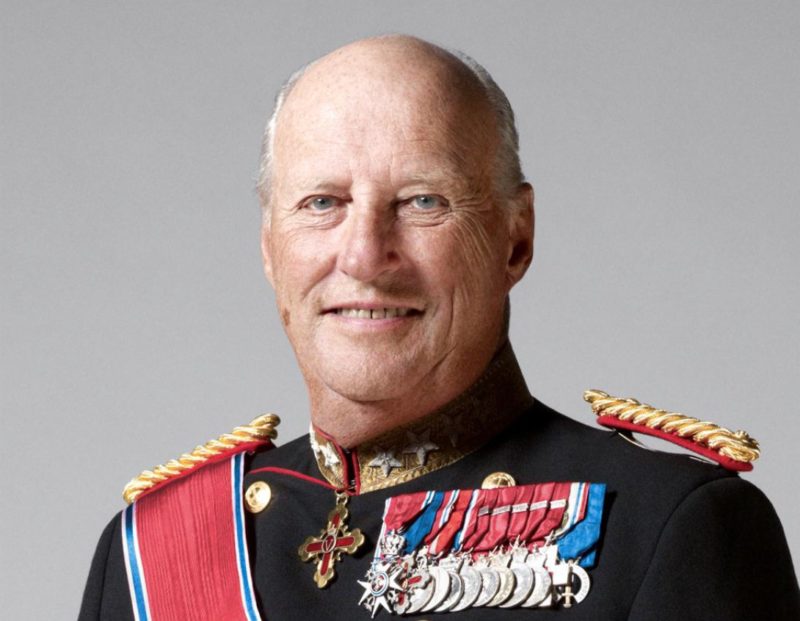Christian, Muslim, Hindu, Buddhist, Daoist and Jewish leaders to join with indigenous forest guardians to express moral commitment and explore faith-based mobilisation to end deforestation

For the first time, leaders from many of the world’s religions will meet in Oslo, Norway to discuss the spiritual and ethical responsibility they share to protect rainforests, one of the planet’s most vital life-support systems.
Besieged by growing global demand for commodities, tropical rainforests are being cleared at a perilous rate, with an area the size of Austria chopped down each year, according to experts.
The meeting, which will take place Monday, June 19, 2017 in the presence of His Majesty King Harald V of Norway, will discuss how to activate the collective moral influence of religious communities across the planet. Based on sheer numbers, they could prove decisive in protecting the world’s last standing rainforests.
There is growing consensus among the world’s religions that environmental concerns are closely linked to social justice, a position reinforced by Pope Francis’ Laudato si and high-level declarations from many other faiths about the spiritual imperative of protecting the planet and its most vulnerable people.
The multi-faith summit marks the first significant engagement by the world’s religions with an issue that climate scientists and development experts argue is a lynchpin for global efforts to address climate change, poverty, food insecurity and violations of human rights. It also heralds the first time that religious leaders from a broad spectrum of faiths will work hand-in-hand with indigenous peoples, the historical guardians of rainforests, on an action agenda to end deforestation.
Hosted by Vidar Helgesen, the Minister of Climate and Environment of Norway, the meeting is being convened by Norway’s International Climate and Forest Initiative (NICFI), Rainforest Foundation Norway (RFN) and the United Nations Development Programme (UNDP), in cooperation with the Forum on Religion and Ecology at Yale University, GreenFaith, Parliament of the World’s Religions, Religions for Peace, the REIL Network, and the World Council of Churches.
Among the questions to be addressed at the event are:
- How do religious and spiritual teachings support the care and protection of rainforests, and how do they relate to environmental, socio-cultural and economic justifications for ending deforestation?
- How can religious and spiritual communities contribute to the battle to protect rainforests and stop deforestation? What are the specific actions on the ground undertaken by spiritual groups and mainstream religions to protect forests?
- Where are forests most under threat and what do spiritual and religious leaders, and their communities and constituencies, propose to do to protect them?
- What can indigenous forest communities teach that can help influence a world that judges the value of forests through the lens of price, utility, or efficiency?
- How does this initiative complement and add to other interfaith efforts?
- Why are the Norwegian government and civil society convening this event? Why now?
- What are the planned next steps for this initiative?
Indigenous peoples leaders to grace the event are: Sônia Guajajara, National Coordinator, Articulation of Indigenous Peoples of Brazil – APIB (Brazil); Joseph Itongwa, executive Committee Member, Indigenous Peoples of Africa Coordinating Committee – IPACC (Democratic Republic of Congo); Abdon Nababan, Vice Chairperson, National Council, Indigenous Peoples Alliance of the Archipelago, AMAN (Indonesia); and Vicky Tauli-Corpuz, U.N. Special Rapporteur on the Rights of Indigenous Peoples.
The religious leaders include: H.E. Metropolitan Emmanuel, Exarch, Ecumenical Patriarchate of Constantinople (Christian); Dr. Nanditha Krishna, Founder, The C. P. Ramaswami Aiyar Foundation (Hinduism); Abbot Phra Paisal Vongvoravisit, Co-Founder, Sekiya Dhamma (Buddhism); Sir Rabbi David Rosen, International Director of Interreligious Affairs, American Jewish Committee and Director, Heilbrunn Institute for International Interreligious Understanding (Judaism); H.E. Monsignor Marcelo Sánchez Sorondo, Chancellor, Pontifical Academy of Sciences and Pontifical Academy of Social Sciences (Catholic); Bishop Emeritus Gunnar Stålsett, Honorary President, Religions for Peace (Lutheran); Dr. Din Syamsuddin, Chairman, Center for Dialogue and Cooperation Among Civilisations (Islam); and The Right Reverend Bishop Pierre W. Whalon, Bishop-In-Charge, Convocation of Episcopal Churches in Europe (Episcopal).
Interfaith leaders are: Reverend Henrik Grape, Coordinator, Working Group on Climate Change, World Council of Churches; Reverend Fletcher Harper: Executive Director, GreenFaith; Dr. Kusumita Pedersen, Vice Chair, Parliament of the World’s Religions; Dr. Mary Evelyn Tucker: Director, Forum on Religion and Ecology, Yale University; and Dr. William F. Vendley: Secretary General, Religions for Peace.
Academics and experts: Lars Løvold, Director, Rainforest Foundation Norway; Dr. Antonio Donato Nobre, Visiting Scientist at the National Institute for Space Research (INPE) and Senior Researcher at the National Institute of Amazonian Research (INPA); and Frances Seymour, Distinguished Senior Fellow, World Resources Institute.
